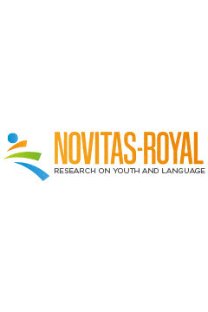A STUDY OF TURKISH HIGH SCHOOL STUDENTS’ BURNOUT AND PROFICIENCY LEVELS IN RELATION TO THEIR SEX
___
Alpay, A., & Eryılmaz, A. (2011). Lise öğrencilerinin derse katılmaya motive olmaları ile okul tükenmişliği arasındaki ilişkinin incelenmesi. [Investigation of the relationship between high school students’ motivation to class engagement and school burnout]. Mehmet Akif Ersoy Üniversitesi Eğitim Fakültesi Dergisi, 21, 26-44.Balkıs, M., Duru, E., Buluş, M., & Duru, S. (2011). Tükenmişliğin öğretmen adayları arasındaki yaygınlığı, demografik değişkenler ve akademik başarı ile ilişkisi. [The prevalence of burnout among prospective teachers, its relation with demographic variables and academic achievement]. Pamukkale Üniversitesi Eğitim Fakültesi Dergisi, 29(1), 151–165.
Çapri, B., Gündüz, B., & Gökçekan, Z. (2011). Maslach tükenmişlik envanteri-öğrenci formunun (MTE-ÖF) Türkçe’ye uyarlanması: Geçerlilik ve güvenirlik çalışması.
[Adapting maslach burnout inventory-student survey (MBI-SS) into Turkish: A validity and reliability study]. Çukurova Üniversitesi Eğitim Fakültesi Dergisi, 1(40), 134-147.
Çapulcuoğlu, U., & Gündüz, B. (2013). Lise öğrencilerinde tükenmişliğin cinsiyet, sınıf düzeyi, okul türü ve algılanan akademik başarı değişkenlerine göre incelenmesi.
[Investigation of burnout of high school students according to gender, grade level, school type and perceived academic achievement level]. Trakya Üniversitesi Eğitim Fakültesi Dergisi, 3(1), 12-24.
Erturgut, R., & Soyşekerci, S. (2010). An empirical analysis on burnout levels among second year vocational schools students. Procedia Social and Behavioral Sciences, 2, 1399– 1404.
Gauché, C. (2006). Burnout and engagement in a South African university student sample: A psychometric analysis (master’s thesis). Retrieved from http://hdl.handle.net/10394/1077 Gündüz, B., Çapri, B., & Gökçekan, Z. (2012). Üniversite öğrencilerinin tükenmişlik düzeylerinin incelenmesi. [Examining of the burnout level of university students].
Dicle Üniversitesi Ziya Gökalp Eğitim Fakültesi Dergisi, 19, 38-55.
Güven, G. (2013). A study on examining the burnout levels of Turkish EFL teachers working at two state universities in Ankara (Unpublished master’s thesis). Ufuk University, Institute of Social Sciences, Ankara.
Kayabaşı, Y. (2008). Bazı değişkenler açısından öğretmenlerin mesleki tükenmişlik düzeyleri. [The level of burnout of teachers]. Sosyal Bilimler Dergisi, 20, 191-212.
Kiuru, N., Aunola, K., Nurmi, J-E., Leskinen, E., & Salmela-Aro, K. (2008). Peer group influence and selection in adolescents' school burnout: A longitudinal study. MerrillPalmer Quarterly, 54(1), 23-55.
Kutsal, D., & Bilge, F. (2012). Adaptation of Maslach burnout inventory-student survey: Validity and reliability study. World Applied Sciences Journal, 19(9), 1360-1366.
Küçüksüleymanoğlu, R., & Onuray-Eğilmez, H. (2013). Müzik öğretmeni adaylarının tükenmişlik düzeyleri: Uludağ üniversitesi örneği. [Burn-out in music teacher trainees: The model of uludağ university]. International Journal of Social Science, 6(3), 905- 923.
Maslach, C., & Jackson, S. E. (1981). The measurement of experienced burnout. Journal of Occupational Behaviour, 2(2), 99-113.
Parker, P. D., & Salmela-Aro, K. (2011). Developmental process in school burnout: A comparison of major developmental models. Learning and Individual Differences, 21, 244-248.
Salmela-Aro, K., Savolainen, H., & Holopainen, L. (2008). Depressive symptoms and school burnout during adolescence evidence from two cross-lagged longitudinal studies.
Journal of Youth Adolescence. Advance online publication. doi: 10.1007/s10964-008- 9334-3.
Salmela-Aro, K., Kiuru, N., Leskinen, E., & Nurmi, J-E. (2009). School-burnout inventory (SBI): Reliability and validity. European Journal of Psychological Assessment, 25(1), 48-57.
Salmela-Aro, K., & Tynkkynen, L. (2012). Gendered pathways in school burnout among adolescents. Journal of Adolescence, 35, 929-939.
Schaufeli, W.B., Martinez, I., Pinto, A.M., Salanova, M., & Bakker, A. (2002). Burnout and engagement in university students: A cross-national study. Journal of Cross-Cultural Psychology, 33, 464–481.
Schaufeli, W. B. (2003). Past performance and future perspectives of burnout research. Journal of Industrial Psychology, 29(4), 1-15.
Yang, H-J. (2004). Factors affecting student burnout and academic achievement in multiple enrolment programs in Taiwan’s technical-vocational colleges. International Journal of Educational Development, 24, 283-301.
Yang, H-J., & Farn, C. K. (2005). An investigation the factors affecting MIS student burnout in technical-vocational college. Computers in Human Behavior, 21, 917-932.
Yedigöz-Sönmez, G., & Çapri, B. (2013). The effect of stress coping program on burnout levels of high school students. International Journal on New Trends in Education and Their Implications, 4(3), 148-164.
- ISSN: 1307-4733
- Yayın Aralığı: 2
- Başlangıç: 2007
- Yayıncı: -
A STUDY OF TURKISH HIGH SCHOOL STUDENTS’ BURNOUT AND PROFICIENCY LEVELS IN RELATION TO THEIR SEX
“YOU REAP WHAT YOU SOW” IDIOMS IN MATERIALS DESIGNED BY EFL TEACHER-TRAINEES
Özlem KHAN, NİLÜFER CAN DAŞKIN
TEACHERS’ PERCEPTIONS OF OTHER TEACHERS’ SPONTANEOUS HAND GESTURING IN THE EFL CLASSROOM
